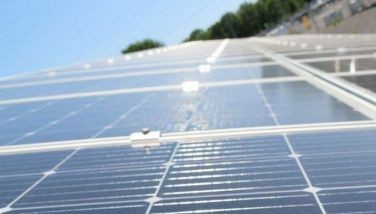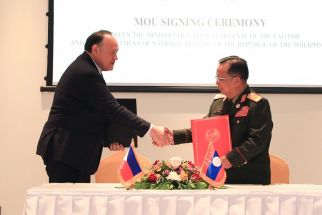Government urged to reject glass firm’s bid for tariff wall
June 1, 2003 | 12:00am
The Philippine Chamber of Glass and Aluminum Industry, Inc. (PCGAII) has appealed to the government not to tolerate but instead intervene in the case of Asahi Glass Philippines’ applica-tion for an increase in tariff and quota covered restrictions on all imported glass and mirror products.
This is imperative if the govern-ment is really sincere in alleviating the plight of the country’s small and medium glass entrepreneurs and helping them as instruments in achieving the country’s econo-mic growth and development, the PCGAII said.
The PCGAII said it considers Asahi’s petition to seek from government a 40 to 50-percent increase in tariff rates of imported glass and mirror products as "counterproductive" and des-tructive of the Philippine glass in-dustry. The petition may cause uncontrollable increases in the prices of local and imported glass products thereby affecting public interest and consumer welfare," lawyer Delano M. Valera, spokes-person of the group said.
"Moreover, Asahi’s move to plea for higher tariffs on imported glass products would unreaso-nably and needlessly clamp the operations of some 2,000 small and medium size glass enterprises on a national level and adversely affect the means of livelihood of close to 50,000 Filipino employes and their families," Valera said.
Higher tariffs, he said, would further promote the "monopolis-tic designs" of Asahi, notwithstan-ding its effect on consumer’s inte-rest, Valera said, as he debunked Asahi’s claim that it does not in-tend to control the glass industry.
On a broader perspective, while Asahi, the country’s lone glass manufacturer claims that the government’s present tariff rates on imported glass and mirror pro-ducts are way below our ASEAN counterparts, "let it be known that ours is a monopoly and could result to shortage of the products in consideration in terms of qua-lity, variety, technology and vol-ume. With direct competitor and only one float furnace, the situa-tion is imminent," Valera said.
"Comparing our industry with other Asean countries is unwar-ranted. Theirs are oligopolies," Valera said. He said Korea has se-ven float furnaces and two com-petitors; Thailand with five fur-naces and three competitors; and Indonesia, nine furnaces and four glass companies in operation. Consumers in these countries are assured of wider choices, better quality of goods and services at competitive prices.
Valera added that Asahi’s claim that its operations suffered serious injuries because of the uptreads in glass imports "is an overstatement that has yet to be proven."
This is imperative if the govern-ment is really sincere in alleviating the plight of the country’s small and medium glass entrepreneurs and helping them as instruments in achieving the country’s econo-mic growth and development, the PCGAII said.
The PCGAII said it considers Asahi’s petition to seek from government a 40 to 50-percent increase in tariff rates of imported glass and mirror products as "counterproductive" and des-tructive of the Philippine glass in-dustry. The petition may cause uncontrollable increases in the prices of local and imported glass products thereby affecting public interest and consumer welfare," lawyer Delano M. Valera, spokes-person of the group said.
"Moreover, Asahi’s move to plea for higher tariffs on imported glass products would unreaso-nably and needlessly clamp the operations of some 2,000 small and medium size glass enterprises on a national level and adversely affect the means of livelihood of close to 50,000 Filipino employes and their families," Valera said.
Higher tariffs, he said, would further promote the "monopolis-tic designs" of Asahi, notwithstan-ding its effect on consumer’s inte-rest, Valera said, as he debunked Asahi’s claim that it does not in-tend to control the glass industry.
On a broader perspective, while Asahi, the country’s lone glass manufacturer claims that the government’s present tariff rates on imported glass and mirror pro-ducts are way below our ASEAN counterparts, "let it be known that ours is a monopoly and could result to shortage of the products in consideration in terms of qua-lity, variety, technology and vol-ume. With direct competitor and only one float furnace, the situa-tion is imminent," Valera said.
"Comparing our industry with other Asean countries is unwar-ranted. Theirs are oligopolies," Valera said. He said Korea has se-ven float furnaces and two com-petitors; Thailand with five fur-naces and three competitors; and Indonesia, nine furnaces and four glass companies in operation. Consumers in these countries are assured of wider choices, better quality of goods and services at competitive prices.
Valera added that Asahi’s claim that its operations suffered serious injuries because of the uptreads in glass imports "is an overstatement that has yet to be proven."
BrandSpace Articles
<
>
- Latest
- Trending
Trending
Latest
Trending
Latest
Recommended





























